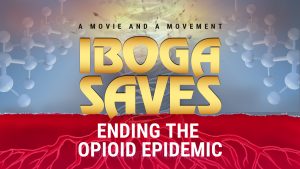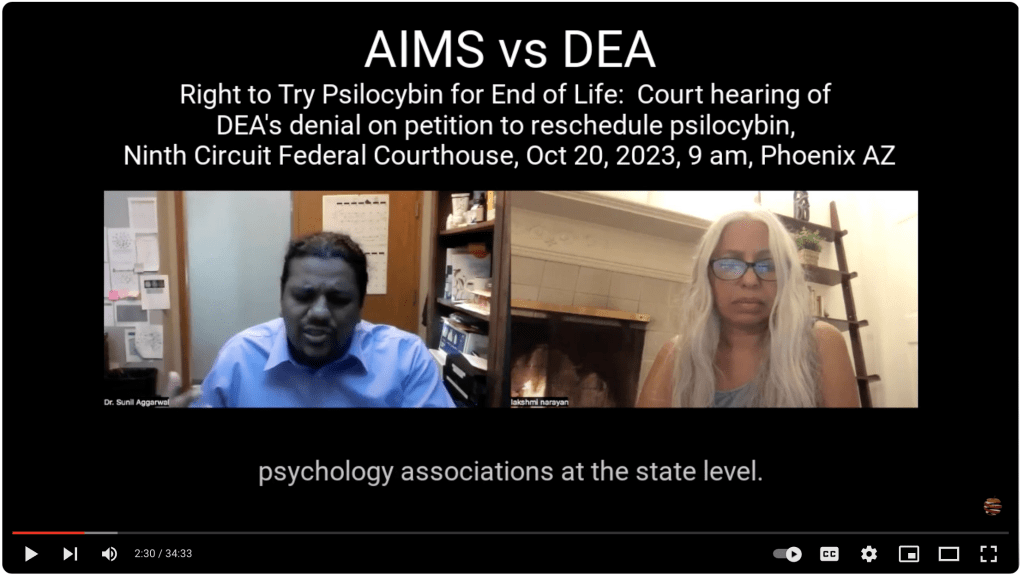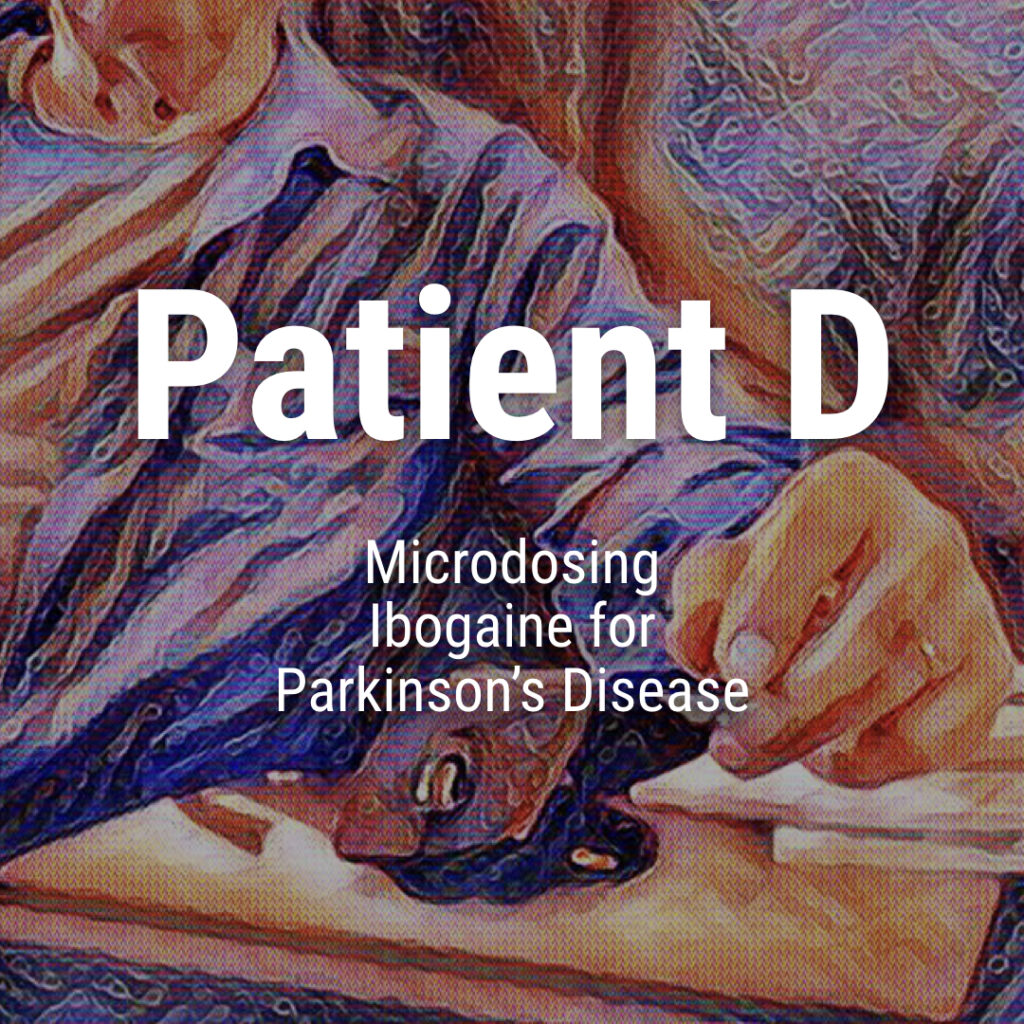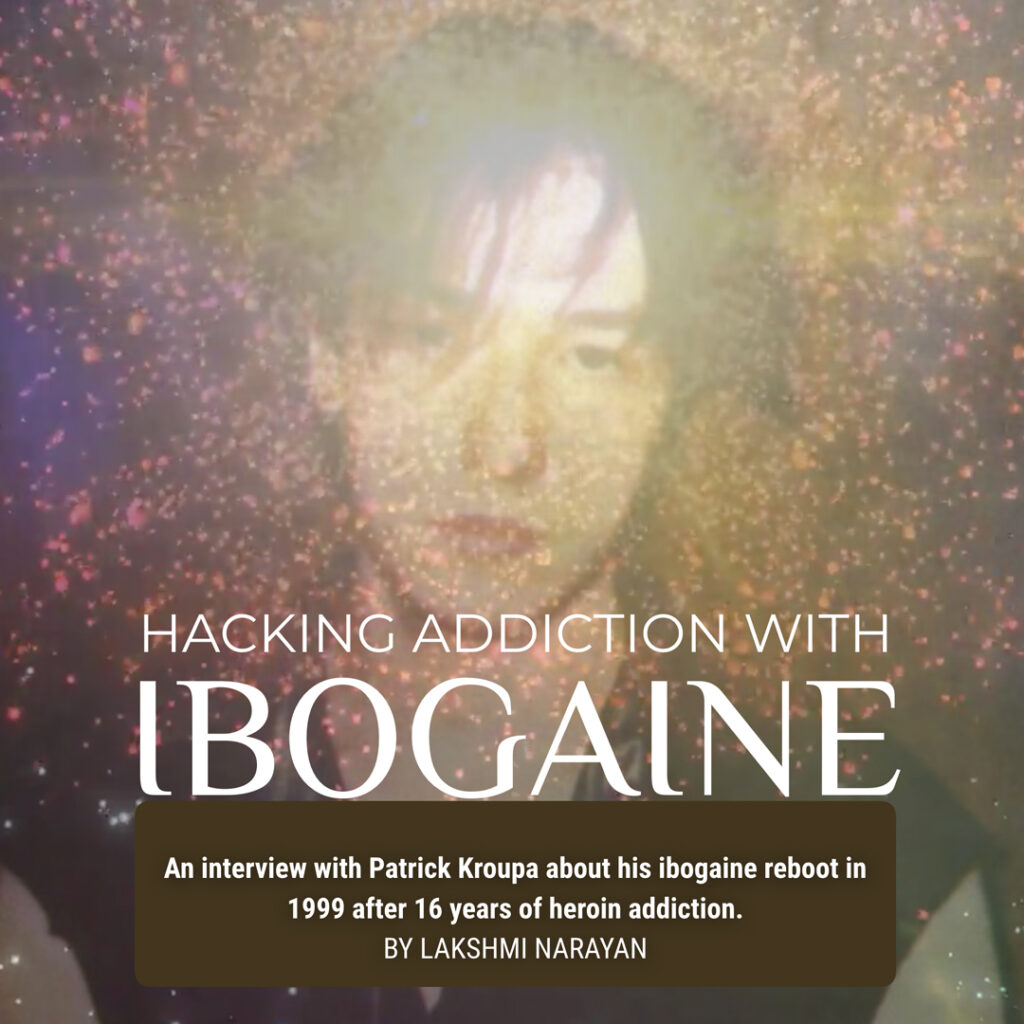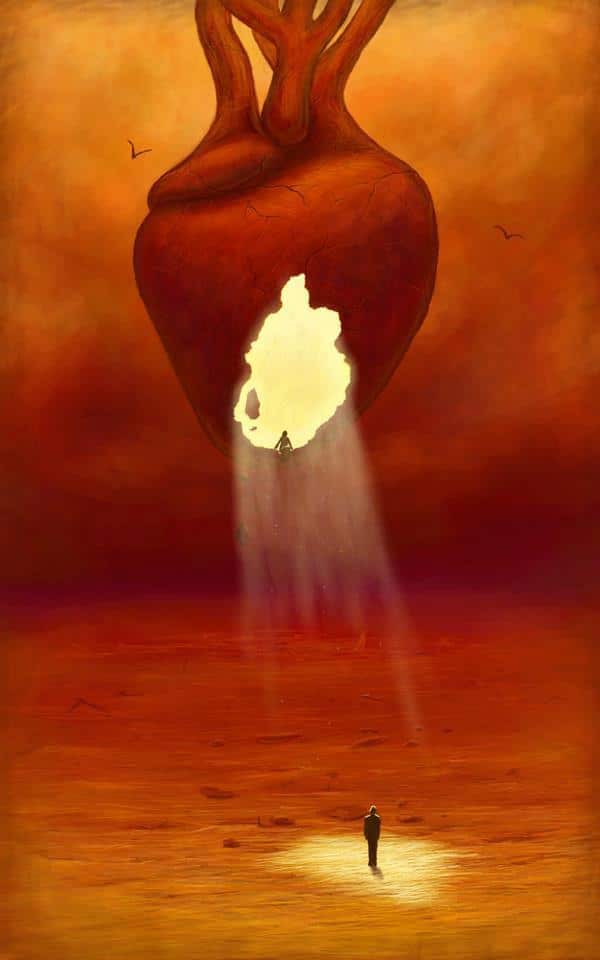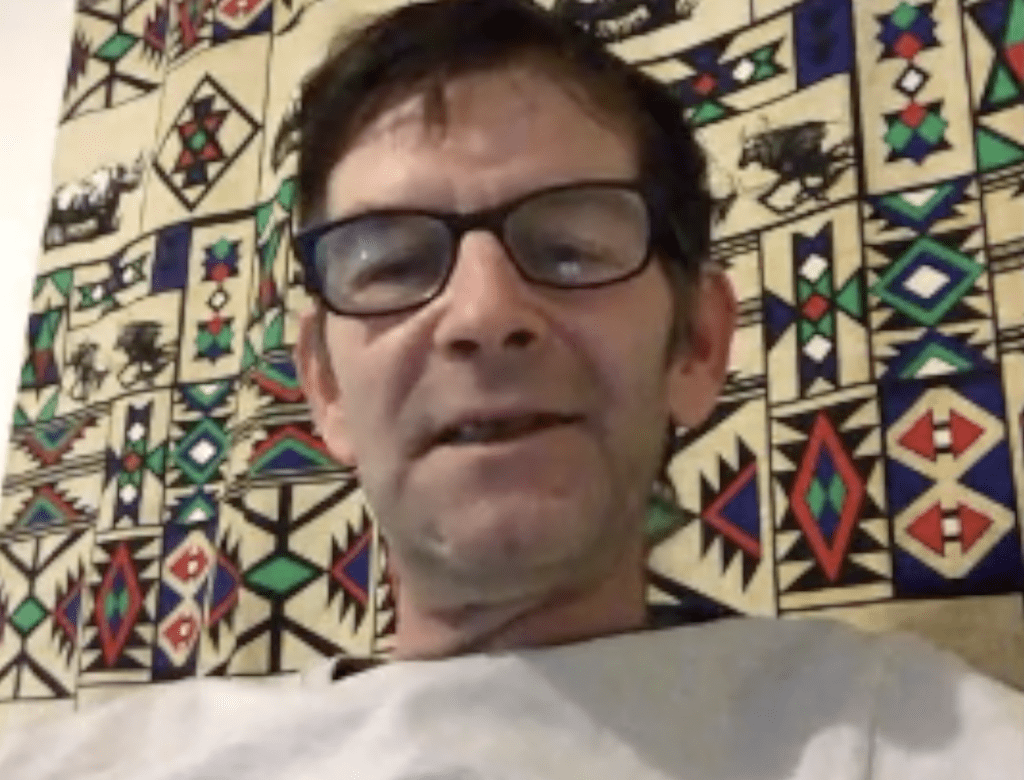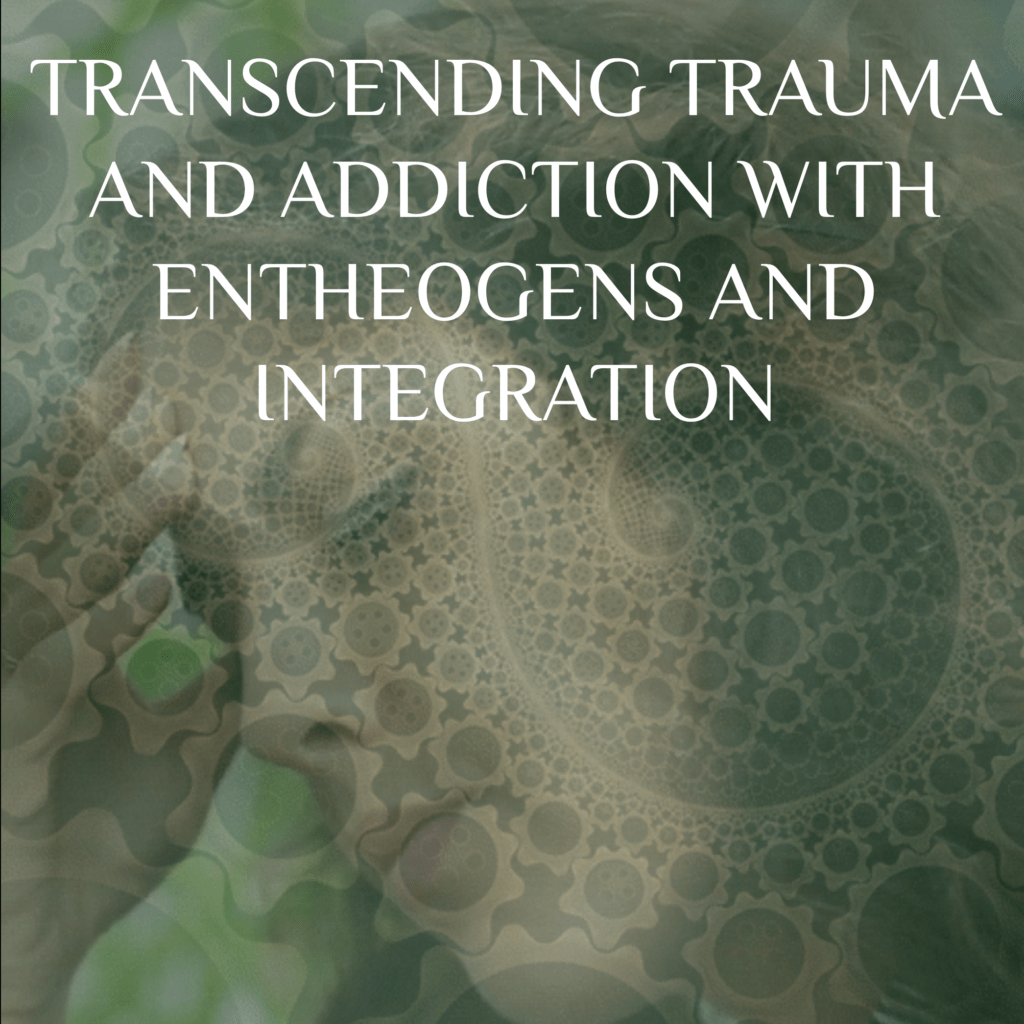Don’t Water the Weeds: IBOGA 101 with Trevor Milar
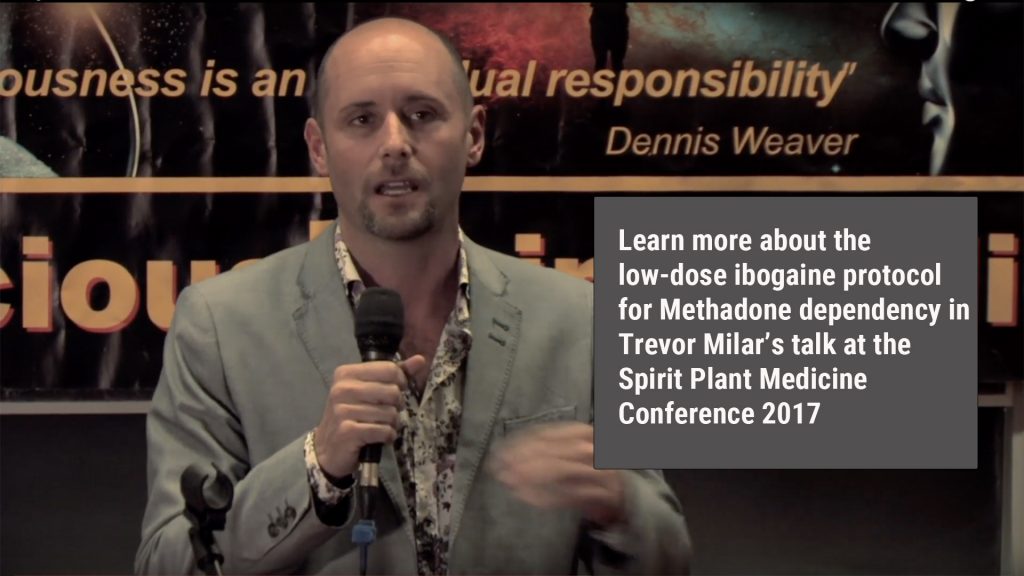
Originally recorded at the Spirit Plant Medicine Conference 2017
I’m genuinely delighted to introduce Trevor Milar.
I’ve known Trevor for several years and he has been a very, very important, I guess you could even say essential component of the work with ibogaine and iboga, in particular, in this area. He’s the owner of Liberty Root therapies which has been doing fantastic work in addiction treatment primarily based in White Rock right here, not far from Vancouver. Trevor is another one of these leading-edge people who’s doing fantastic work and so please give him a big welcome.
TREVOR:
“So iboga/ibogaine, it comes from Africa, a shrub in Africa which is called Tabernathe iboga. There are other plants with ibogaine in it as well. Voacanga Africana is one of those. The tale in the traditional context is that a porcupine was eating something when a hunter killed that porcupine, went home, his wife cooked it up, and they got very high.
It’s a powerful psychedelic. It leads to generally about a 36-hour long trip and apparently that is how iboga was discovered and that was through the pygmy tribes in Africa and then the legend is that the pygmy tribes in Africa then brought the iboga to the people who became the Bwiti. The Bwiti tradition is mostly in Gabon but it’s all over West Africa as well.
I don’t know too much specifically about the Bwiti tradition I am planning on going to Africa in July and visiting a whole bunch of villages then but I have experienced this medicine in a kind of westernized Bwiti context. There are some people working with iboga in that Bwiti context here in BC actually and they do really great work, but when I spoke to my friend Mark this morning and asked “So what’s what are some of those great things that you say about Bwiti again?” and he said “Bwiti means a study of life.” and one of the great things that I heard him say when I was working with him is:
“In the Bwiti tradition everything that you could ever want comes from life and everything that you could ever need comes from life but you also are life so therefore you’ve got those answers within you.”
So in the traditional context the initiate will use the medicine for initiation into adulthood, they’ll use the medicine for whatever ails them, it’s done in a ceremonial context. When they do initiate people it can take a week.
It is a root bark so it’s the second layer of root bark that’s used as the actual medicine so when you do it in that traditional context it’s like eating a lot of very acrid sawdust. I’m a bit nervous about going to Africa that’s the one thing that frightens me is the taste of iboga frightens me. I’ll drink ayahuasca all day compared to eating this stuff so I’m just not sure I can stomach it! I’ve heard rumors that if you can’t stomach it they’ll get it in you other ways so I hope I don’t have to discover that….
So I encourage people to really look into that traditional bwiti way of using the medicine and if you do get a chance to go to Africa I encourage that as well, this trip that I’m going on in July, I believe anybody can go so if you’d like information on that you can let me know.
And then in the 1960’s a 19-year old heroin addict by the name of Howard Lotsof in New York City–and I heard this from his wife Norma–this chemist buddy knew that he would try anything, he said, “Hey Howard, try this ibogaine stuff.” he said “Alright, I’ll try it”. He’d try anything so he did this on his way to his psychologists couch and he spent the next couple of days on his psychologist couch but when he came out the other end he’s like “Wait a second, I haven’t wanted heroin the whole time that I’ve been on this nor do I want it now”.
…and that’s remarkable in the face of this opioid epidemic—and you know, me, I’ve been working with opioid addicts for the last four years—opioid addiction and other addictions, they’re a lot different. Opioid addiction is very physically addictive so if you don’t get that opiate your whole body feels it—right now our bodies are pumping endorphins which are our body’s natural opiate but when you take that opiate from external sources for long enough your own body shuts down that system. There’s a certain pain that gravity brings us you know there’s there’s a certain pain to living which we don’t even recognize it but if you take away your pain killing chemicals all of a sudden you’re in agony too — so to stop heroin addiction or any opioid addiction it’s not “Why don’t you just stop”, its “If you’re going to stop you’ve got six or seven days of die or hell that you’re gonna face followed by months and months of post acute withdrawal symptoms.” so all of a sudden when Howard being a heroin addict feels no withdrawal and no desire for opiates anymore that’s a really big deal.
So thank goodness Howard was very industrious and he got the word out he was knocking on doctor’s doors for years saying I have found a cure to addiction you really need to look at this and he started something called the Global Ibogaine Therapy Alliance which is still in existence. I’m currently actually the acting director of that and they came out with the standards manual.
One of the reasons why it’s a bit of a dark horse is it’s the psychedelic that can kill you
There are potential cardiac risks so when we work with clients through Liberty Root we do a lot of screening beforehand you must get an EKG done you must get blood work done and you must know the rsiks. All of the dangerous aspects of iboga are preventable and through these guidelines you know nobody should be dying from this medicine there has been enough published that gives you the right ways of working with this medicine and thankfully Howard was able to do that so with Howard’s kind of evangelization iboga clinics opened up around the world. It is illegal in the United States, it’s legal here in Canada.
I’ll get a bit more into Canada in a second but clinics opened up around the world–there’s clinics in Mexico, in New Zealand—like in Canada, it’s on the prescription drug list, so you know many years and many, many treatments have gone by. Iboga seems to have anywhere from, depending on when I do the count, personally out of my clinic it seems to be anywhere from about 65 to 75% success rate treating hardcore opiate addiction and it does work for other addictions as well.
You know, alcohol, you need to detox before you go into a treatment whereas with opioids you can stay on opioids right up until the time that you go into the treatment. Crystal meth– it works brilliantly for crystal meth. I see a 100% success rate for crystal meth out of the clients that I’ve seen coming through — there’s a dozen clients that have come through—but with a low dose of medicine as well, it’s incredible what happens with crystal meth.
The first person that I know about working with it in Canada was Marc Emery who is probably well known to many people in this room. He started cannabis culture and has been a big advocate for a lot of different things including the medical use of cannabis but he started treating people for free in Vancouver with the money he’d made in other ventures and that went on for a couple of years as far as I know then the iboga therapy house opened up on the Sunshine Coast in BC that operated for four or five years then there was a bit of a dry spell and then we opened Liberty Root and then some other clinics have opened up in Vancouver as well or just north of Vancouver.
So the legalities in Canada it was a natural health product it was on the list of natural health products which in speaking to somebody who knows somebody at Health Canada basically when they came out with that natural health product list they went around the world looked for any kind of thing like ginkgo, biloba, rhodiola, anything they could find to put on this list they put on this list and it went on that list and that wasn’t the best space for it because a natural health product should be available over-the-counter and it should be something that there’s not a lot of risk in taking and as I said there is potential risk with iboga.
In May 2018 they just put it on the prescription drug lists. Over the four years that I’ve been working with this medicine I’ve actually had many interactions with Health Canada. They’re all awesome, I’ve had nothing but amazing people who really want to do a great job and are curious about what I’m doing and took some time to research what we were up to before calling me and have had great relationships with them, but what they did in May is put it on the prescription drug list which is where it should be because it is potentially dangerous. Unfortunately, with it on the prescription drug list, that doesn’t mean we can just walk into Pharmacy and pick up ibogaine even if your doctor prescribes it it still needs to go through clinical trials which then will allow ibogaine to have the drug identifier number which then means it would be available through the pharmacy.
I personally closed Liberty Root down in May after about four years. I just needed to take some some time off — we had — and I’ll tell you about it — we had an adverse event somebody in August came to Liberty Root and he forged the EKG that he sent me because he knew he had a bad heart but with a 20-year heroin addiction he was desperate to stop. It almost killed him, he ended up in the hospital in a coma for a week and in the hospital for six weeks. And now he’s more than two years clean so he’s happy, his family’s happy with how it all went, but I seem to have picked up a slight bit of PTSD over those six weeks, so I found out I wasn’t quite as clinical as I had been able to be throughout the the years previous, so I’ve decided to close the operation. So what are we gonna do moving forward we’re moving forward with a couple of angles— number one I’m really focused on trying to get the clinical trials that ibogaine needs and deserves done. These clinical trials aren’t going to prove anything to me, I know this stuff works.
I see it work again and again it’s 100 percent effective in detoxing opiate addicts. And you know of course people have decisions to make once they leave my facility but I don’t let them leave unless I see that they’re 100% detox and I don’t think there’s any other thing on earth that does that for an opioid addict, so working towards trials. At the same time Canada has something called the “special access drug program” and we’re going to use that avenue to see if we can get access and permission to use the medicine in Canada now.
The root bark itself is not scheduled as far as I know. I heard that through a friend of a friend but the friend of the friend was Dennis McKenna so he probably knows who to talk to. But the root barkitself is not scheduled at all.
Well the experience itself… I myself have had four large doses of iboga over the years. I try and do it at least once a year. The experience is called Oneiric, so Oneiric means as related to dreams, so it’s it’s it’s not very exciting to watch you know. As far as my work it’s somebody lying in bed we do have a registered nurse that we bring in whenever we do the flood dose one of those registered nurses is in the room and we have a doctor that works with us. she was able to prescribe morphine and things like that leading in so we didn’t have to rush into giving ibogaine treatment.
But the experience you know as related to dreams so people tend to see dreamlike hallucinations. it’s a lot different than anything else. It’s different than ayahuasca, but related chemically slightly. it’s still a tryptamine. I heard Dmitri, who’s one of kind of the rock stars in the iboga world it was an event like this a movie had just came out that he was featured in called “Dangerous with Love” and somebody in the room said “What’s the difference between Iboga and ayahuasca?”
I’ve had ayahuasca I think 16 or 17 times I’ve had iboga plenty of times. He said Iboga is a root, its rooty, its ancestral, we go back into the past, we dig deep into the holistic aspect of what this earth means and and how we are related to that and he said, ayahuasca it’s from outer space. And I think that that really rings true having tried both of those medicines numerous times.
Ayahuasca has the ability to take you very far out and give you incredible lessons that you then need to come home and do the hard work to integrate and I find that iboga out of all the psychedelics that I’ve worked with it really does seem to have this added integrative piece that it’s so powerful that it can help somebody stop heroin addiction biologically. What’s happening apparently is the ibogaine once you take it it gets turned into nor-ibogaine which then like THC gets stored in your fat cells for quite a while so it slowly releases over the course of the next couple of months and really puts people on a bit of a pink cloud where that’s a great opportunity to make sure that your life is in order so we do a lot of work before our clients come to us to kind of prepare them and get that aftercare strategy in place and then hopefully they run with that aftercare strategy.
But at the same time I’ve treated people without any aftercare strategy and you know that was kind of more in our early days but they still see success, so you know sometimes people put all this effort into an aftercare strategy and they might relapse, whereas somebody who doesn’t do anything, they still see success… so I’m always looking for that special sauce what is it that will make each treatment stick and there’s a lot of ingredients to that special sauce.
I think I can probably take a few questions if anybody would like.
Before I do that I’ll just quickly share a personal story about the last large dose of medicine that I took which was in May of last year I took it in this Bwiti context my friend had worked with this medicine and been to Africa and been trained in that way and he wanted me to try it his way I said sure and went up to Squamish where he was working at the time and had this experience and the way he works with it is kind of, he has you write out ten questions that you’d like to ask the medicine and I knew it was an ancestor medicine so I said I’d like to see my grandma and grandpa and I wrote a few other questions and then the way he answered those questions is kind of when you’re at your peak he comes down and takes you through almost a visualization exercise that leads you through all of these questions, so at one point he said all right now go find your Grandma and Grandpa, so I got to grandma and she’s all the unconditional love that she always was and it was wonderful and he was kind of pulling me away to the next activity as it were in the visualization exercise and before I felt my grandpa’s energy. He was a World War two vet. He was an alcoholic for most of his life. He wasn’t a brutal drunk by any means but was suffering PTSD as we call it now from World War two and didn’t know how to deal with that so he drank a case of beer every night and it really affected my mother and it made — she– my mother would always say don’t do that you’ll get addicted don’t do that you’ll get addicted which turned addiction into this forbidden fruit I needed to figure out which I’m sure has led me into my current career.
But my grandpa’s energy out of nowhere just stepped forth in such a powerful way and he said “Trevor you need to stop drinking for my lineage.” like whoa– so that was that. And then the next part of an exercise was Mark said go into your front yard and he said are there any trees there I said yes. I lived at this beautiful house in White Rock at the time with this gorgeous cherry tree and it was the time of the year that this cherry tree was flowering so it was this big pink flowery tree and he said go up to that tree and give it a hug so I gave the tree a hug and he said ask that tree what the purpose of life is like “Tree, what’s the purpose of life? and the tree said “To flower.” Awesome that makes a lot of sense, so then he said and I can’t remember the exact terminology of the question but it was a question around how how to get rid of negative tendencies in your life how to get rid of that crap that you’re carrying and the tree said “Stop watering your weeds.” Yeah that makes a lot of sense and you know kind of in conjunction with what my grandfather had just said I saw that drinking for me was a weed, I was probably you know, I was never a truly problematic drinker, I wasn’t hungover necessarily every morning, but maybe I wasn’t as happy as I would have been if I hadn’t had that bottle of wine.
So I woke up the next morning and spoke to Mark and said yeah “All the stuff came up around drinking.” and he said he had quit drinking a couple years before because he had had a problematic relationship with it but he said you know there’s an argument to be had that because of the nature of the work we’ve chosen we may need to hold ourselves to a bit of a standard like– yeah that’s fair so maybe I’ll stop drinking.
So I drove home the next day and on my way home I had this incredible urge to go to the pub that I always went to and flirt with the girls I always flirted with and have a couple of beers and I called Mark and said I’m dying for a beer here. He said, “Well maybe, you know, maybe you don’t have to stop forever but maybe at least today and while that medicine’s in your system.”
I thought alright I’ll just go home. So I went home I went to bed and I woke up and I haven’t wanted a drink since! The desire completely fell away and it’s still like that.
So on a on a final note I hope that you all find a way to stop watering your weeds so that you can all flower.
Methadone prolongs the QT interval of the heart and that’s essentially the space in between heartbeats. ibogaine also prolongs the QT interval of the heart so too much space in between the heartbeats is hugely problematic as in a dead person, so what we used to say is, we needed somebody to come off of Methadone for at least ten days prior to an ibogaine treatment.
Methadone has a certain stickiness to it as well so I would actually tell my clients after years of working with this that you actually need a month off so that would mean switching to a short-acting opiate which isn’t the best thing to do to somebody that’s been using Methadone for a while there’s a certain stability that can come from using Methadone so that that’s the old protocol.
There’s a very cool protocol that Andrea from ICEERS is working with Clare Wilkins from Pangea biomedical, who’s a mentor of mine– a great ibogaine provider— and they have this awesome protocol where you just go in once a week— you go into a bit of withdrawals so that your receptors are open and waiting to receive receive something, take a small dose of ibogaine just enough that you’re barely gonna feel it… you stay in the hospital or wherever the treatments happening for about four or five hours and then you go home.
And then when you need Methadone again when you feel that need you only take half as much so you can do that once a week and walk people off Methadone in this really non-invasive way. it’s a dreamy protocol.
I just I helped a friend with it recently and he just walked off you know slept that night feels like a million bucks so I think we’re gonna see a lot more of protocols like that because the dose of ibogaine is very hard on the system but we can do a lot with a little medicine and for someone who’s been using methadone for 25 years yeah, it’s sticky stuff like I said… it’s not going to be easy.
As one of my first clients said there’s no such thing as a biological freeride. You’ve got to pay for all this pleasure that you’ve been hijacking all these years. But the cool thing with ibogaine is you pay the piper and your debts are actually settled afterwards so I would I’d be happy to work with somebody who’s been on methadone for that long with that protocol.
BIO:
Trevor Milar is the Chairmain of Board of MAPS Canada, Owner of LIberty Root Therapy LTd, and an ibogaine provider, mostly to opiod addicts.
WARNING: RISKS & CONTRAINDICATIONS
excerpted from the Global Ibogaine Therapy Alliance
It is crucial that patients with childhood congenital heart defects, prolonged QT intervals, a history of heart failure, enlarged heart, any history of blood clots, stroke, transient ischemic attacks, pulmonary embolism, deep vein thrombosis, or irregular heart rhythms do not attempt to take ibogaine because of these risks. Other pre-existing heart conditions should be carefully examined and a risk/benefit assessment taken into consideration. Read complete post about safety considerations here.
Iboga Saves Sponsors
Iboga Saves is a movie and a movement to spread the word about iboga's medicinal value for addiction recovery, and change the laws that criminalize it's use in the US. If you are an ibogaine clinic, former addict, shaman, therapist, coach, or other entity sympathetic to the cause of ending the opioid epidemic, please consider becoming a sponsor.

DONOR SPONSOR
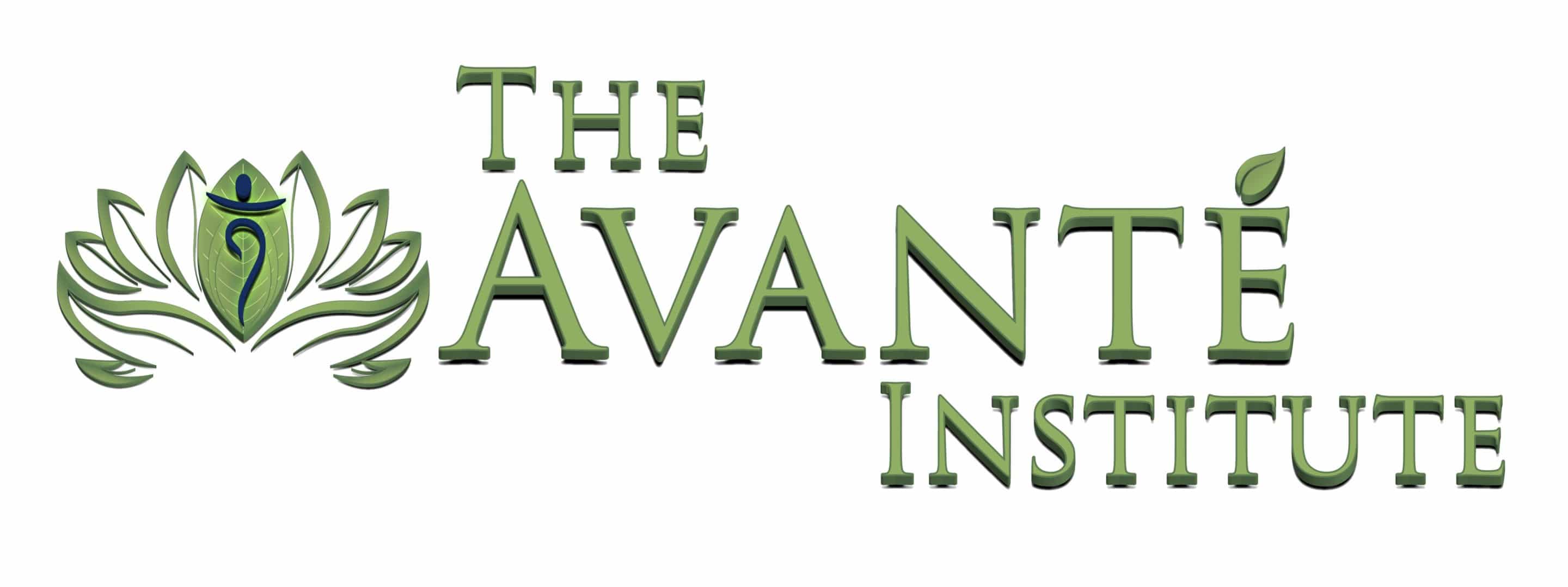
DONOR-SPONSOR
Subscribe to Awake Events & Posts

